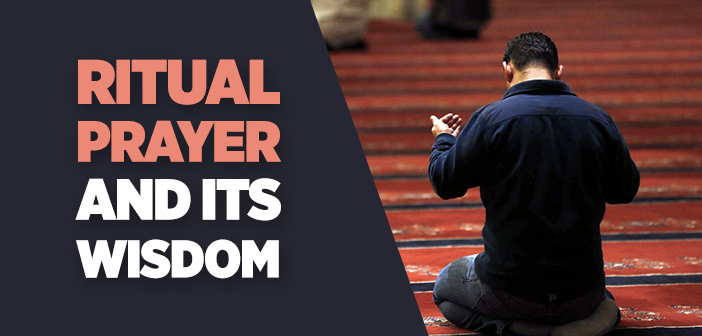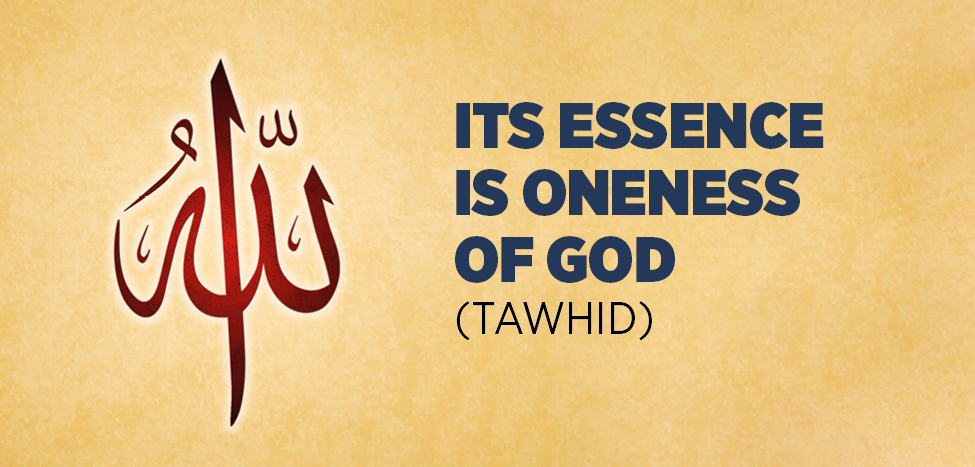What is the ritual prayer?
Ritual prayer (henceforth, “prayer”) is a form of worship that starts with takbeer (saying “Allahu Akbar,” i.e., Allah is greatest) and ends with salaam or greetings. It contains certain actions and words.[1] God Almighty has ordered human beings to make ablution, keep their bodies, clothes, and environment clean before he commanded acts of worship such as prayer, circumambulation of the Kaaba, and reciting the Quran. When we investigate the subjects of ablution and ritual bath (al-ghusl), we can see how much emphasis Islam gave to physical cleanliness in addition to spiritual purity. For this reason, the books of basic and advanced Islamic jurisprudence all start with the section on cleanliness. Thus, one of the benefits of prayer is that it makes human beings live a very clean life. The importance of cleanliness in human life needs no demonstration.
Moreover, prayer prevents people from committing all sorts of evil. It also prevents the blind pursuit of self-interest and tendencies in an aimless and uncontrolled fashion.[2] Since it is repeated five times a day, it is the most effective medicine against carnal desires that will prevent one from remembering the Lord. It curbs desires and passions and constantly redirects one to righteousness and to the straight path in every matter. Thus, while the believer prays for the sake of Allah, he also at the same time ends up bettering both his worldly life and his life in the hereafter by being protected from the evils and desires of the carnal self.
Prayer establishes in minds the truth that Allah has exclusive dominion of the world and ensures that a human being always feels this.
Praying five times a day saves people from the monotony of their daily routines and comforts them. By taking human beings momentarily away from their all kinds of worldly worries, it helps them to express their submission and thankfulness toward their Lord. At the same time, the human being, during prostration, faces himself and finds the opportunity to tend towards the inner world. American Muslim convert Matt Salesman, a former missionary, said the following: “By praying I find serenity and tranquility – especially in Friday prayers! The times that I am in a mosque are special times for me that give serenity to my soul.”[3]
Muslim convert Professor Timothy Gianotti of Toronto’s York University said: “It is as if I capture peace when I prostrate. It is as if I feel more safe. As if I am in a land of peace. An when I prostrate I feel like I have returned home from afar. Perhaps like I reached at Allah. This much is all I can describe. Prayer is a feeling of peace and tranquility.”[4]
As prayer is the spiritual sustenance for the spirits, it is also healing for the physical body. It is a known truth that prayer, by providing an opportunity for miscellaneous organs to move, for the joints to bend, and for the muscles to tighten and relax, provides activity to the body. Prayer is also an element of balance in the lives of Muslims. This worship, which is performed at certain times and within certain rules, habituates a person to a disciplined and regular life.
Muslims can perform their prayers individually wherever they want, but Islam encourages them to pray together by forming congregations. This is because prayers performed in congregation teach us to come together in being subjects to Allah without discrimination based on race, color, language, position, or rank. We integrate and help out each other in an environment where social relationships strengthen the consciousness of being one nation (ummah). In a community environment where the same ideas and aims are shared, the differences between individuals can be mostly overcome, and feelings of equity and brotherhood are established in the hearts, and a religious passion prevails.
In fact, praying five times a day is quite a minor and easy duty to perform for human beings. Within 24 hours the total time that a human being will leave his worldly affairs and rise to the presence of Allah adds up to only about 24 minutes. With this very minor sacrifice the human being gains huge material and spiritual benefits.
[1] Some people think Muslims worship the Kaaba when praying. This is an extremely mistaken presupposition. Muslims worship neither the Kaaba nor the Black Stone (Hajar Al Aswad), or prostrate to them or turn towards them when praying. The direction that Muslim turn to is not the building of the Kaaba itself but the area that it’s in. Were the Kaaba to be removed or restored, the Muslims’ praying direction would not change: when praying, people would turn towards that direction regardless of the existence of the building. (Prof. Dr. M. Hamîdullah, Islâm’a Giriş (Introduction to Islam), p. 108).
With the spread of paganism in Mecca, even though many idols were erected inside and around the Kaaba, the Kaaba itself was affiliated with any idol and was always called “Beytullah: The House of Allah.” By getting stuck with polytheism people historically worshipped many stones, trees, etc. but even though they venerated the Kaaba, Hajar-al Aswad, and the Rank of Abraham a lot, they never worshipped them. This is a special protection of Allah the Exalted.
[2] Al-Ankabût (The Spider), 29: 45.
[3] Ahmet Böken – Ayhan Eryiğit, Yeni Hayatlar (New Lives), I, 49.
[4] Ahmet Böken – Ayhan Eryiğit, Yeni Hayatlar (New Lives), I, 19. For the life stories of people who enter Islam later see these works: Prof. Dr. Ali Köse, Conversion to Islam: A Study of Native British Converts, London: Keagan Paul International, 1996; A. Arı – Y. Karabulut, Neden Muslüman Oldum (Why I became a Muslim), Ankara: Diyanet Işleri Başkanlığı (Republic of Turkey, Presidency of Religious Affairs) pub., 2007; Defne Bayrak, Neden Muslüman Oldular? (Why did they become Muslims?), Istanbul: Insan yayınları, 2008.
Source: Dr. Murat Kaya,The Final Divine Religion: ISLAM





